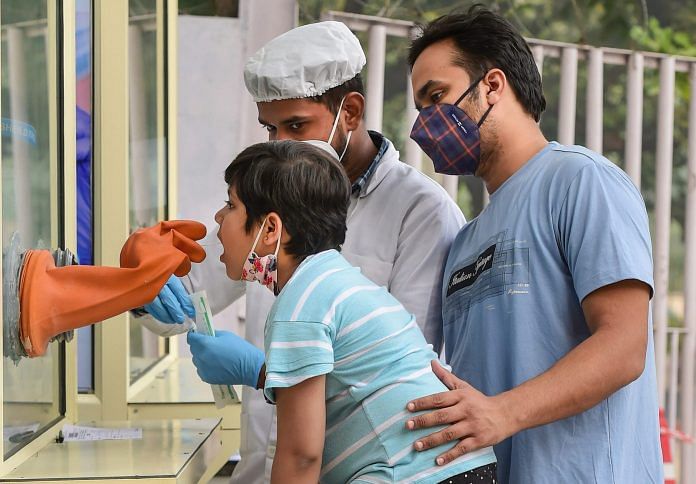New Delhi: A Covid-19 vaccine is still some time away, but the Government of India is already looking at options like roping in ‘ambassadors’ to deal with possible vaccine hesitancy. The health ministry is in the process of drawing up detailed guidelines for states on the vaccine rollout that will also deal with vaccine hesitancy. However, all citizens will have a choice on whether to take the vaccine or not.
“It is important to look at multiple ways to boost people’s confidence in vaccines. The first step will have to be transparency, systemic robustness and scientific rigour. No shortcuts should be allowed. We also need to look at newer ways of addressing people. We can have ‘vaccine ambassadors’, people that the country looks up to such as the prime minister or chief ministers take the vaccine to boost people’s confidence. We can also rope in Bollywood celebrities,” a senior health official said.
Among the first set of people to get a shot of Bharat Biotech’s Covaxin when the phase 2 trials were launched was Haryana Health Minister Anil Vij. When Sputnik V was launched in Russia in August, one of the daughters of Russian President Vladimir Putin was among the first to get the shot, according to news reports from Russia.
The health ministry is also preparing a rulebook for states on Covid vaccines, one of whose chapters will be about how to effectively deal with misinformation.
“It is the collective responsibility of the Centre, states, NGOs, vaccine manufacturers etc., to make people aware, to educate them about the safety and efficacy of vaccines. There is an inherent issue of vaccine hesitancy which may have nothing to do with vaccine adverse events as there is a section which may feel they do not need a vaccine,” Union Health Secretary Rajesh Bhushan said Tuesday.
“So whenever information, communication activities are taken up, one aim will be to tell people about the benefits of the vaccine at an individual and a population level. There is a detailed guideline that the ministry of health is preparing that we will soon share with states. One chapter in that will be on communication and on addressing vaccine safety and efficacy concerns,” he added.
Also read: Govt never spoke about vaccinating entire country against Covid, says health secretary
Vaccine hesitancy a global phenomenon
The pace at which work on the Covid-19 vaccine has been undertaken and the unwavering media gaze on it has resulted in some amount of distrust in it. It is also an extension of the phenomenon of vaccine hesitancy that has caused a resurgence of measles in the United States and is widely believed to be the reason why Delhi saw a diphtheria outbreak in 2018 even though the vaccine for the disease is among the oldest in the country’s universal immunisation programme.
Researchers from the Barcelona Institute for Global Health surveyed 13,426 people in 19 countries to determine potential acceptance rates and factors influencing the acceptance of a Covid-19 vaccine.
“Of these, 71.5% of participants reported that they would be very or somewhat likely to take a COVID-19 vaccine, and 61.4% reported that they would accept their employer’s recommendation to do so. Differences in acceptance rates ranged from almost 90% (in China) to less than 55% (in Russia),” the researchers reported in Nature Medicine in October.
Also read: Why fewer people are awaiting a Covid-19 vaccine now compared to 3 months ago
Reports about adverse events
Senior health ministry officials also say that while a 30 crore list of priority groups has been readied, vaccination would not be mandatory, as is the case with testing too. “If a person does not want to get vaccinated, we cannot force them. It is a voluntary act,” said a senior official.
Currently, there are five vaccines in India in various stages of human trials and a Rs 900-crore mission has been set up to help the suitable candidates clear regulatory hurdles.
In Tuesday’s Covid briefing, Bhushan referred to vaccine manufacturers’ responsibility of assuring people about the safety and efficacy of vaccines at least twice.
“It is important that the system comes clean on these things. Being robust is one thing, addressing public concerns is a different thing,” said a health official, who did not want to be named.
Also read: How the world can fight back the fear of a coronavirus vaccine



